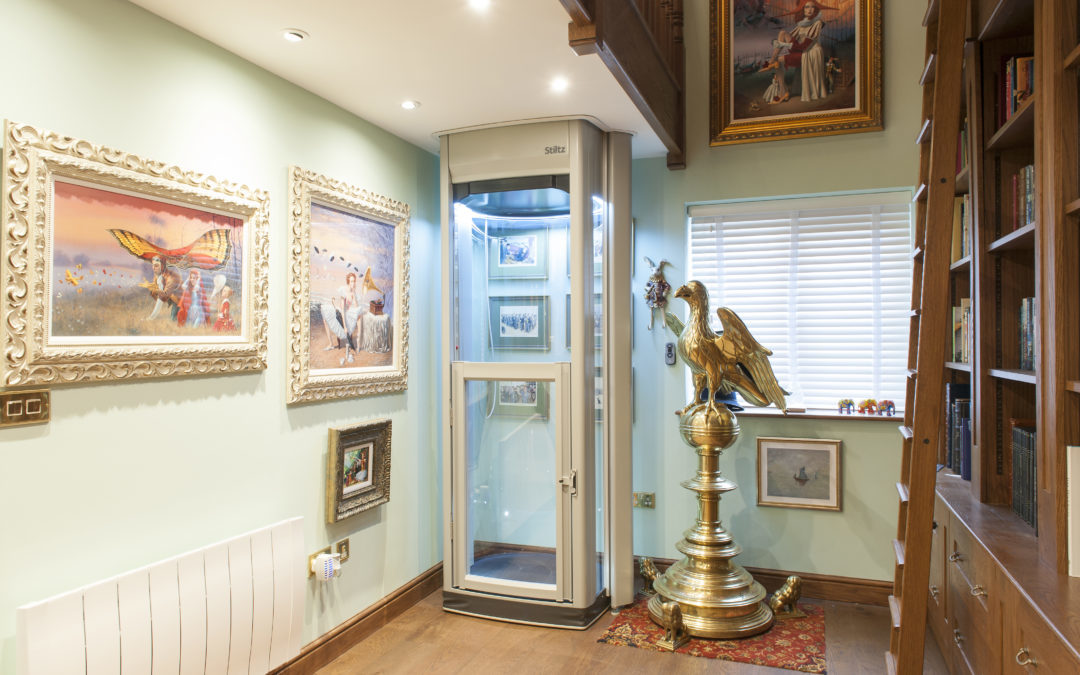There are many things that we know we should do sooner, but somehow always slip to the bottom of the list. Making a will, clearing out the garage, and reviewing suppliers are the common ones, as well as making our home ready should our mobility become impaired.
Many people have identified that a home elevator is something they will want in their property when they are older and are finding it more of a struggle to move around, but they are uncertain as to when to take the plunge and have the lift installed.
We look at the most common triggers that make people decide to upgrade their home with a home elevator, and consider when exactly is the optimum time to install a residential elevator.
Your mobility is decreasing
A decrease in mobility can happen relatively quickly, perhaps after an illness or operation, or can be a slow and steady path, which might make it hard to recognize in yourself or a partner. But there will be indicators that the home you love is becoming more of an obstacle to living than the safe nurturing place it should be.
These are a few signs to look out for. Are you:
– finding yourself planning when to make a trip upstairs, rather than just going up and down without thinking about it?
– experiencing frequent accidents and falls?
– becoming exhausted doing every day activities?
– experiencing more aches and pains, especially first thing in the morning or after activities?
If you or your partner are suffering from the above, then it might be best to install your home elevator soon, so that you can stay mobile around your home without impacting your health further.
Diagnosis of a degenerative condition
Being diagnosed as having a degenerative disease can be a very difficult time. There are many diseases classed as degenerative, such as Huntingdon’s Disease, Multiple Sclerosis, and Ehlers-Danlos Syndrome, where symptoms become worse over time. Often such conditions affect a person’s sight, mobility or movement, and therefore make climbing stairs increasingly difficult.
The difficulty after diagnosis is facing the shock of the news, having an idea of how the future could look, but not always being sure of impact the condition will have on you, or the timescales. In some cases your doctor will be able to see how far the disease has progressed, predict the speed of onset of and provide an idea of what to expect.
Often people in this situation prefer to install a lift earlier on in their condition so that if and when they get worse they don’t have to manage the purchase and installation of their lift at the same time as managing doctors appointments and hospital visits.
You or your partner have suffered recurrent illnesses
Some people choose to install a home elevator after suffering from even everyday illnesses which can leave you feeling fragile. A simple dose of the ‘flu can leave you feeling weak and dizzy and like you need some additional support. Especially for seniors, illnesses can increase the feeling of physical vulnerability and so, having the knowledge that no matter what happens, you can safely travel between floors in your home adds real reassurance.
Remodelling your home
Sometimes people know they want a home elevator in the future, do not have need for it yet, but decide to install a residential elevator when remodelling their home. This approach ensures that the lift fits perfectly within their home’s design and layout, and that any upheaval of installation is kept to a minimum.
Future proofing
Often people feel real peace of mind knowing they have secure plans for the future. Like having a will in place, and a healthy pension pot, knowing that you will be able to stay in your home no matter what your mobility needs in the future can give you a sense of comfort, allowing people to enjoy their life more. The joy of home elevators are that no matter when it is installed it is always a benefit to the home, whether that is simply adding another convenient route to get upstairs, giving young children or grandchildren a safer way to move between floors, or enabling you to take heavier items upstairs without injury. Research has also shown that a house with a residential elevator is easier to sell than one without, so future-proofing the home makes perfect sense.

